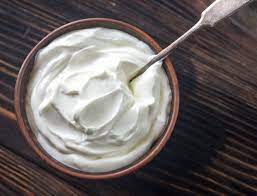Procal
3 Reasons Why Greek Yoghurt Is Better Than Regular Yoghurt

With more protein, fewer carbs and sugar, and a higher concentration of probiotics, Greek yoghurt offers superior taste and nutrition. Discover why Procal’s Authentic Greek Yoghurt is the healthier choice in this detailed comparison.
Taste and Texture
While Greek yoghurt and regular yoghurt are made using the same ingredients, it is the way they are made that creates a difference in taste and texture. Greek yoghurt has a thicker, creamier quality compared to regular yoghurt, along with a signature rich, tangy taste.
Traditionally, Greek yoghurt is made from sheep’s milk, which contains 9 percent butterfat – this fat gives it the unmistakable consistency that sets it apart from plainer varieties. When founding Procal, Nick Thyssen wanted to recreate this traditional consistency. He began by sourcing high-quality, pasture-fed milk from Australian-farmed cows. Then, he added a higher percentage of butterfat to the final product, replicating the sheep’s milk used in Greece.
Greek yoghurt is also thicker than regular yoghurt because the whey and other liquids are removed during production. With Procal, this process creates a more concentrated and creamy yoghurt, packed with extra nutritional goodness in every fluffy spoonful.
Nutrient Comparison
When comparing the nutrient composition of Greek and regular yoghurt, Greek yoghurt wins every time. Greek yoghurt contains about half the carbs and sugar of regular yoghurt. For example, a 245-gram serving of regular yoghurt has 17 grams of carbs, while Procal’s Greek Yoghurt contains just 10 grams. Similarly, regular yoghurt has 17 grams of sugar, compared to only 9 grams in Greek yoghurt.
The rich protein content in Greek yoghurt helps keep you feeling fuller for longer, making it an ideal breakfast choice. Protein is also essential for cell growth and muscle building, making Greek yoghurt a great post-workout recovery snack.
While regular yoghurt's higher sugar content might make it a good dessert option, excessive sugar consumption can lead to health issues such as Type 2 Diabetes, cavities, and heart disease. Greek yoghurt’s lower sugar content makes it a smarter, healthier choice.
Both Greek and regular yoghurts are excellent sources of magnesium, vitamin B12, and iodine.
Health Benefits
Because of its density, Greek yoghurt contains a higher concentration of probiotics than regular yoghurt. Probiotics are live bacterial cultures that support the good bacteria in your gut. Regular probiotic consumption can improve digestion, regulate bowel movements, and enhance your body’s ability to process a variety of foods.
Greek yoghurt is also rich in calcium, which is essential for maintaining strong bones. Consuming Greek yoghurt can help improve bone density and reduce the risk of osteoporosis.
Additionally, eating Greek yoghurt has been linked to lowering cholesterol and triglyceride levels. A build-up of these substances can harden or block arteries over time, increasing the risk of heart disease and atherosclerosis. By incorporating Greek yoghurt into your diet, you may help reduce these risks while enjoying a delicious and versatile food.

